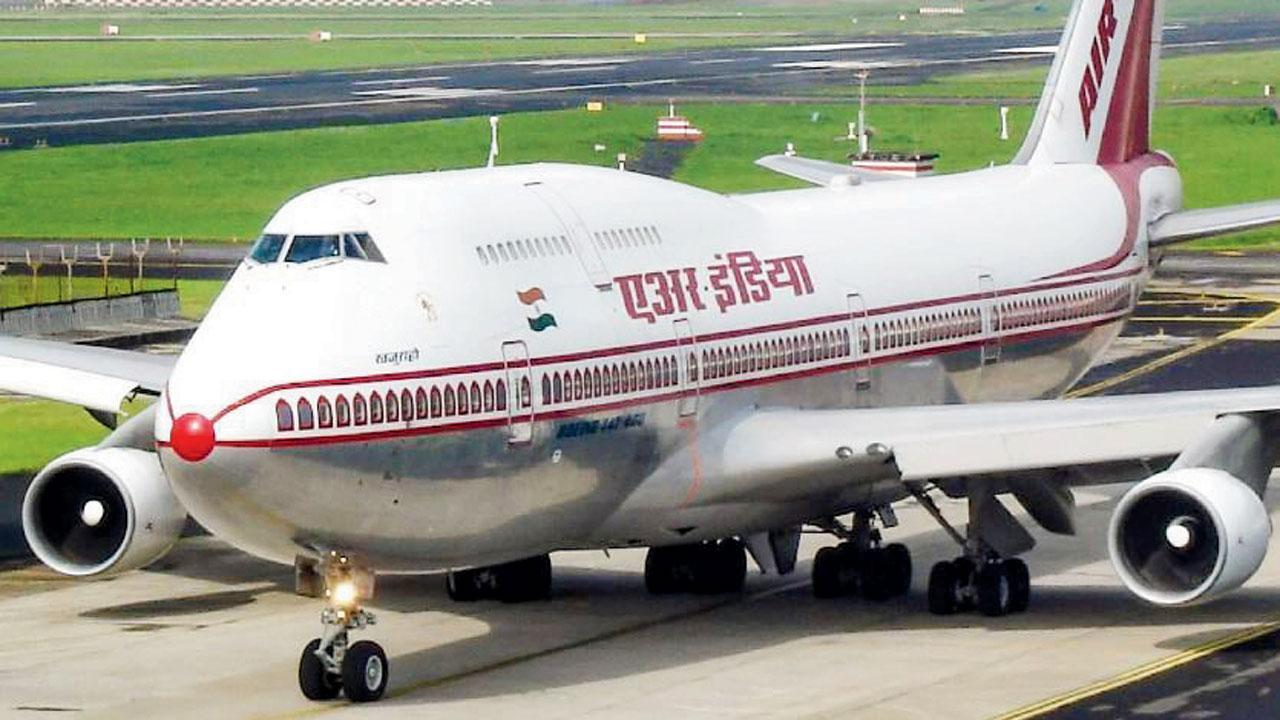


After a long and illustrious career, Air India's Boeing 747, affectionately known as the "Queen of the Skies," made its final journey from Mumbai International Airport today. The remaining four planes were sold by the Tata Group, the new owner being US-based AerSale with plans for freight conversions and disassembly. Airlines mourned the end of an era, with former Jet Airways CEO Sanjiv Kapoor expressing regret that one could not be retained as a museum in honor of its founder, JRD Tata.
Air India's Boeing 747: A Farewell to an Icon
Air India's Boeing 747, a legendary aircraft that graced the skies for decades, has bid farewell to the airline. The final four planes, known affectionately as the "Queens of the Skies," made their last journey from Mumbai International Airport on February 15, 2023.
Historical Background
Air India introduced the Boeing 747 to its fleet in 1971, becoming one of the first airlines to operate the wide-body aircraft. Over the years, the 747 played a pivotal role in Air India's growth and reputation, connecting India to major destinations around the world.
The 747 was admired for its spaciousness, comfort, and reliability. It could carry up to 420 passengers and had a unique upper deck, which became a signature feature of the aircraft. The airline's 747s underwent several upgrades and refurbishments to meet the changing needs of passengers and the aviation industry.
The Farewell
After nearly 50 years of service, Air India's 747s have reached the end of their operational life. The remaining four planes were sold by the Tata Group, the airline's new owner, to US-based AerSale. The aircraft will be converted into cargo freighters or disassembled for spare parts.
The farewell ceremony at Mumbai International Airport was a bittersweet moment for the airline and aviation enthusiasts. Air India employees, veterans, and former passengers gathered to bid farewell to the iconic aircraft. Former Jet Airways CEO Sanjiv Kapoor expressed regret that the airline could not retain one of the 747s as a museum in honor of JRD Tata, the founder of Air India.
Top 5 FAQs
1. Why did Air India retire its 747s? The 747s had reached the end of their operational life and required significant maintenance and upgrades to continue operating efficiently.
2. What will happen to the retired 747s? The four retired planes will be converted into cargo freighters or disassembled for spare parts.
3. Is this the end of the Boeing 747? No, the Boeing 747 is still in service with several airlines around the world, although it is being phased out gradually in favor of more modern aircraft.
4. What was the significance of Air India's 747s? Air India's 747s played a crucial role in the airline's growth and international operations. They were also symbols of India's aviation industry and provided a comfortable and spacious travel experience for passengers.
5. Is there any way to see a retired Air India 747? Currently, there are no plans to preserve one of Air India's retired 747s as a museum. However, there are several 747s from other airlines on display at aviation museums around the world.

The Life Insurance Corporation of India (LIC) has strongly refuted a report by The Washington Post claiming that its investment decisions were influenced by external factors and linked to the Adani Group. LIC clarified that all its investment decisions are taken independently in line with board-approved policies, and there has been no plan or document prepared to infuse funds into Adani companies. The state-owned insurer also denied any involvement of government bodies in its investment decisions, stating that it follows strict due diligence and acts in the best interest of stakeholders. This statement comes after LIC came under scrutiny for its exposure to the Adani Group in the past.

In a critical move, top officials in India's finance ministry pushed for state-owned Life Insurance Corporation of India to invest billions of dollars in the Adani Group, a controversial conglomerate headed by billionaire Gautam Adani. The proposal was made despite some officials being aware of potential risks and criticisms surrounding the group, including a recent indictment by US prosecutors for bribery allegations. Many have criticized the move as it involves the usage of middle-class savings and guaranteed returns for the benefit of a private company.

Despite being aware of the risks, officials of India's finance ministry proposed and fast-tracked a plan in May 2025 for the state-owned insurance and investment company, Life Insurance Corporation (LIC), to invest approximately $3.9 billion in an Adani group firm. This came at a time when the Adani group was facing corruption charges and reluctance from global banks to extend loans. The decision faced criticism from opposition leader Rahul Gandhi, as it has implications for the long-term savings and guaranteed returns of middle-class investors, who rely on LIC for low-risk investments. The Washington Post's investigation is based on documents and interviews with officials from LIC, the Department of Financial Services, and bank officials familiar with Adani group finances.

Australian batsman Travis Head opens up about his love for challenging batting conditions in the upcoming Ashes series, citing it as an opportunity to score freely and align with his natural aggressive style. While other top-order players have struggled on difficult Australian surfaces, Head has excelled and believes it will continue to be a challenge for England's batters. Former captain Steven Smith also chimes in, saying it will be tough for England if Australia continues to produce lively pitches.

Union Minister Kishan Reddy praised India's youth for their role in propelling the country towards becoming a developed nation by 2047. Addressing newly appointed government employees at the 17th Rozgar Mela, he emphasized the transformative potential of young citizens in shaping the country's future. With over 51,000 individuals receiving job offers through the Rozgar Mela initiative, Reddy credited Prime Minister Narendra Modi's leadership for India's rapid progress in various sectors and encouraged the new recruits to become torchbearers of progress.

The Baltimore Museum of Art has received a generous donation of over $10 million from the Stoneridge Foundation to support their art education department. This donation, the largest in the history of the museum, will fund various educational initiatives, including free family activities and teaching apprenticeships for nearby university students. This gift highlights the importance of museums in promoting education and cultural awareness and sends a message that supporting museums does not have to come only through schools. This funding will also create new positions for museum educators and help the museum better accommodate the numerous education requests they receive.

Tata Motors, one of India's leading automotive companies, has announced the introduction of a new safety feature for their popular SUV, the Nexon. Along with the Advanced Driver Assistance System, the company has also launched a Red Dark Edition of the Nexon and updated its technology. The Nexon has already earned top safety ratings and great commercial success, and this latest update further solidifies its position in the market as a safe, high-performance, and stylish SUV.

Piyush Pandey, the iconic figure in the Indian advertising industry, has passed away at the age of 70. With his powerful storytelling and campaigns that spoke to India in its own language, he transformed the country's advertising landscape. He was also the first Indian ad professional to receive the Padma Shri, a testament to his immense contributions to the industry. Despite stepping down from his role as Executive Chairman of Ogilvy India, his legacy will continue to inspire and shape the world of branding.

A recent RBI bulletin has revealed that the profitability of Indian companies has nearly tripled since the onset of the Covid-19 pandemic. The corporate profit-to-GDP ratio has reached a 17-year high, with large companies emerging as the primary contributors to this increase. This surge has been attributed to pandemic-induced pent-up demand, manufacturing resilience, and improved operational efficiency. However, despite this growth, corporate credit growth remains muted as firms are sitting on significant cash reserves, reducing their reliance on bank loans.

The Employees’ Provident Fund Organisation (EPFO) has announced five major changes to the Employees’ Pension Scheme (EPS) that will significantly impact the retirement savings of salaried employees. These changes include a revised method of pension calculation, an increase in the maximum pension limit from Rs 7,500 to Rs 15,000 per month, and a reduced minimum age for drawing pension from 58 to 50 years. These revisions aim to simplify pension access, increase benefits, and improve portability for members across the country. This move, following a Supreme Court directive, is expected to provide major relief to pensioners and ensure a fair and realistic computation for employees.